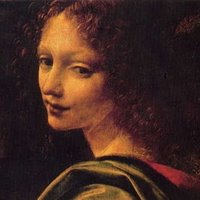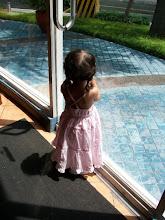 Chapter One
Chapter One By the river Piedra I sat down and wept. There is a legend that everything that falls into the waters of this river -- leaves, insects, the feathers of birds -- is transformed into the rocks that make the riverbed. If only I could tear out my heart and hurl it into the current, then my pain and longing would be over, and I could finally forget.
By the River Piedra I sat down and wept. The winter air chills the tears on my cheeks, and my tears fall into the cold waters that course past me. Somewhere, this river joins another, then another, until -- far from my heart and sight -- all of them merge with the sea.
May my tears run just as far, that my love might never know that one day I cried for him. May my tears run just as far, that I might forget the River Piedra, the monastery, the church in the Pyrenees, the mists, and the paths we walked together.
I shall forget the roads, the mountains, and the fields of my dreams -- the dreams that will never come true.
I remember my "magic moment" -- that instant when a "yes" or a "no" can change one's life forever. It seems so long ago now. It is hard to believe that it was only last week that I had found my love once again, and then lost him.
I am writing this story on the bank of the River Piedra. My hands are freezing, my legs are numb, and every minute I want to stop.
"Seek to live. Remembrance is for the old," he said.
Perhaps love makes us old before our time -- or young, if youth has passed. But how can I not recall those moments? That is why I write -- to try to turn sadness into longing, solitude into remembrance. So that when I finish telling myself the story, I can toss it into the Piedra. That's what the woman who has given me shelter told me to do. Only then -- in the words of one of the saints -- will the water extinguish what the flames have written.
All love stories are the same.
We had been children together. Then he left, like so many young people who leave small towns. He said he was going to learn about the world, that his dreams lay beyond the fields of Soria.
Years passed with almost no news of him. Every now and then he would send me a letter, but he never returned to the paths and forests of our childhood.
When I finished school, I moved to Zaragoza, and there I found that he had been right. Soria was a small town, and as its only famous poet had said, roads are made to be traveled. I enrolled in the university and found a boyfriend. I began to study for a scholarship (I was working as a salesgirl to pay for my courses). But I lost the competition for the scholarship, and after that I left my boyfriend.
Then the letters from my childhood friend began to arrive more frequently -- and I was envious of the stamps from so many different places. He seemed to know everything; he had sprouted wings, and now he roamed the world. Meanwhile, I was simply trying to put down roots.
Some of his letters, all mailed from the same place in France, spoke of God. In one, he wrote about wanting to enter a seminary and dedicate his life to prayer. I wrote him back, asking him to wait a bit, urging him to experience more of his freedom before committing himself to something so serious.
But after I reread my letter, I tore it up. Who was I to speak about freedom or commitment? Compared to him, I knew nothing about such things.
One day I learned that he had begun to give lectures. This surprised me; I thought he was too young to be able to teach anything to anyone. And then he wrote to me that he was going to speak to a small group in Madrid -- and he asked me to come.
So I made the four-hour trip from Zaragoza to Madrid. I wanted to see him again; I wanted to hear his voice. I wanted to sit with him in a caf‚ and remember the old days, when we had thought the world was far too large for anyone ever to know it truly.
Saturday, December 4, 1993
The place where the conference was held was more formal than I had imagined it, and there were more people there than I had expected. How had all this come about?
He must be famous, I thought. He'd said nothing about this in his letters. I wanted to go up to the people in the audience and ask them why they were there, but I didn't have the nerve.
I was even more surprised when I saw him enter the room. He was quite different from the boy I had known -- but of course, it had been twelve years; people change. Tonight his eyes were shining -- he looked wonderful.
"He's giving us back what was ours," said a woman seated next to me.
A strange thing to say.
"What is he giving back?" I asked.
"What was stolen from us. Religion."
"No, no, he's not giving us anything back," said a younger woman seated on my right. "They can't return something that has always belonged to us."
"Well, then, what are you doing here?" the first woman asked, irritated.
"I want to listen to him. I want to see how they think; they've already burned us at the stake once, and they may want to do it again."
"He's just one voice," said the woman. "He's doing what he can."
The young woman smiled sarcastically and turned away, putting an end to the conversation.
-------------------------------------------------------------------------------------------------------------------------------------------------------------------------------------------------------------------------
The foregoing is excerpted from By the River Piedra I Sat Down and Wept by Paulo Coelho.
Going through a cathartic phase and found this piece of literature to be, once again, part of the healing process as I take on the next challenge that is part of my mission in life.


